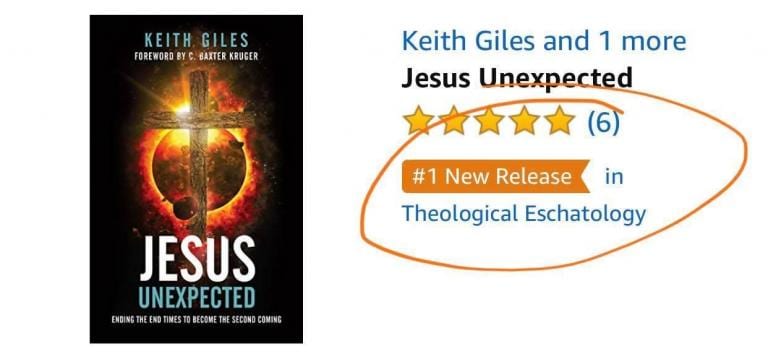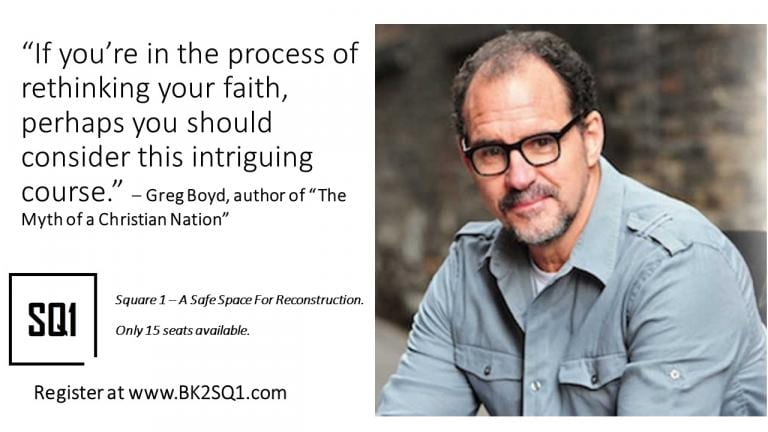
“God is love, but he’s also a God of wrath“, they tell me. But, if this is so I have a few questions.
Like, why doesn’t this wrathful God show us his anger when Adam and Eve disobey in the Garden?
Where is this wrath when the first murder takes place?
Perhaps He is saving it up for when Jesus comes to take the torturous beating we all deserve?
But, if so, then why does Jesus forgive – without bloodshed – before the cross?
Why is this wrath characteristic not listed as one of the Fruits of the Spirit?
Why, in fact, does Jesus – who says he only does what he sees the Father doing – just forgive everyone no matter what?
And, while we’re at it, why does Jesus tell us the parable of the Prodigal Son and leave out the Father’s need for payment, bloodshed, or any display of wrath?
As I was in a dialog the other day with a dear friend, this question came up and I suddenly realized something about the story of the Prodigal Son – the only person in the story who demands retribution or punishment is the older brother, not the Father.
That got me thinking about what Jesus was trying to show us in this story. Perhaps he wants us to notice, not only the great love and compassion of our Heavenly Father, but also the fact that it’s the older brother – not our Abba – who demands punishment.
This is sort of what I notice whenever I talk to Christians who embrace Penal Substitutionary Atonement Theory and the doctrine of Eternal Torment. They typically express confusion over a lack of justice in the Universal Reconciliation model, saying “It just seems like if God forgives everyone in the end then He hasn’t really dealt with sin. Someone should pay for the evils they’ve done.”
And in reply I usually ask, “So, you’re saying you hope that after you die that God makes you suffer for all the sins you’ve committed?”
Because, of course, they don’t mean they should suffer for their own sins. Their sins are covered in the blood of the Lamb, after all. But, those “other people” who are “evil” need to suffer for all the wrongs they’ve done. It’s only fair.
But, if we’re ok with Jesus forgiving our own sins without requiring us to suffer, then why are we uncomfortable with the idea that everyone else should enjoy the same mercy, grace and forgiveness we do?
I think this is the main disconnect most of us have.
We love mercy when it’s shown to us, but show mercy to “those sinners” and now we have a problem.
Our desire to see others suffer for the wrongs they have done is part of what we need to be forgiven for and redeemed from. Once we are transformed into the image of Christ, we will learn to love mercy and celebrate the restoration and reconciliation of everyone – even our prodigal brothers and sisters – as much as we love it for ourselves.
So, keep in mind, the Father doesn’t require punishment before we can be loved, forgiven and welcomed into the family of God.
But, sometimes, we do.
And that’s something the Father hopes to change about us as we learn to abide in Christ.
Let it begin in me.
**

NEW ONLINE COURSE: Starting Sept. 7 I’ll be leading a new 3-week online course called “Rethinking the Second Coming of Christ: Exposing Dispensational Rapture Theology” based on my brand-new best-selling book “Jesus Unexpected: Ending The End Times To Become The Second Coming”.
Learn more and register HERE>

Deconstructing your faith? Need a community to help you find space to Reconstruct your faith? If so, please meet me at Square 1. This 90-day online course is designed to help you move through the painful process of Deconstruction and onward through the freedom and joy of Reconstruction. Our next round starts Sept. 21. Register for 65% off for a limited time HERE
**
Keith Giles and his wife, Wendy, work with Peace Catalyst International to help build relationships between Christians and Muslims in El Paso, TX. Keith was formerly a licensed and ordained minister who walked away from organized church over a decade ago to start a home fellowship that gave away 100% of the offering to the poor in the community. Today he is the author of several best-selling books, including “Jesus Undefeated: Condemning the False Doctrine of Eternal Torment” which is available now on Amazon.













